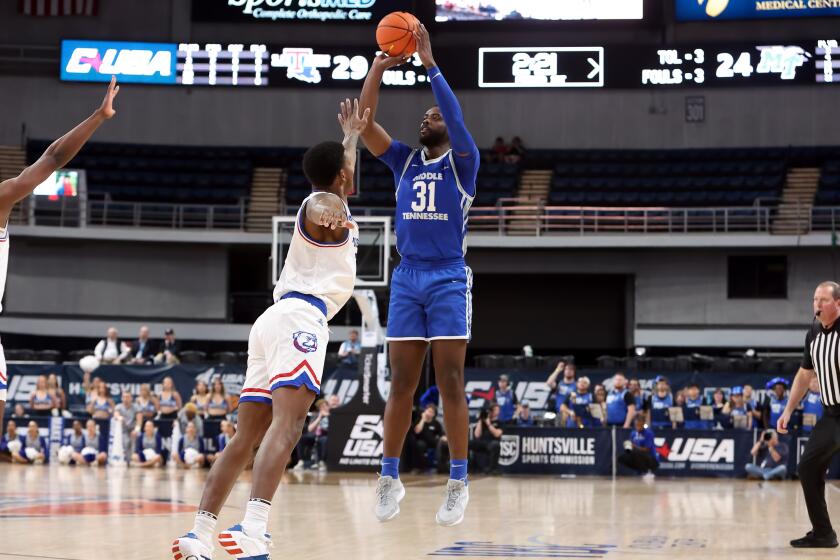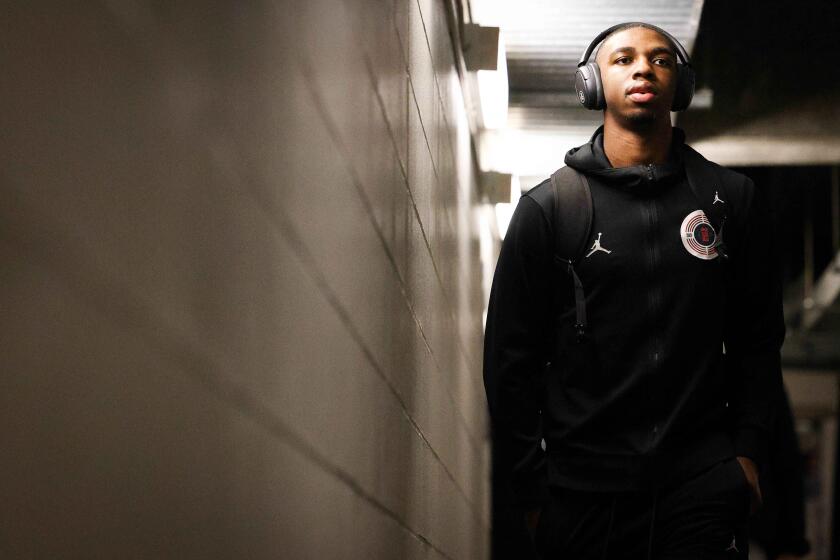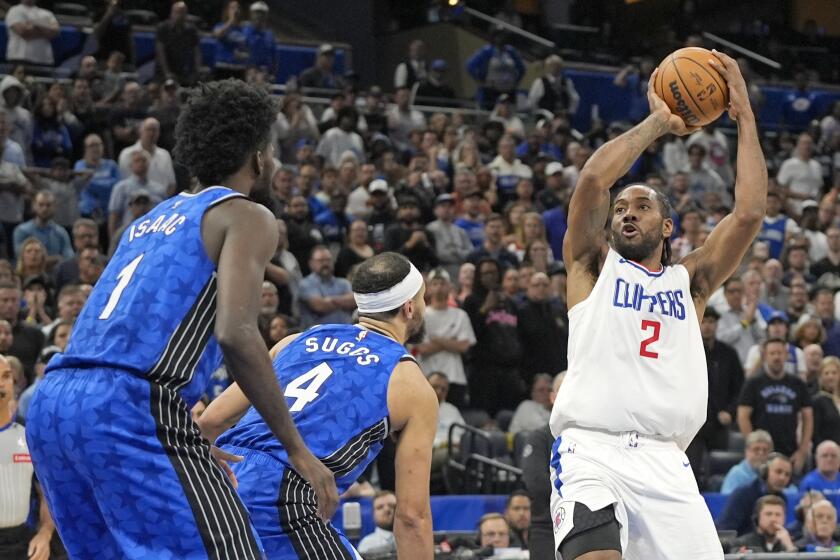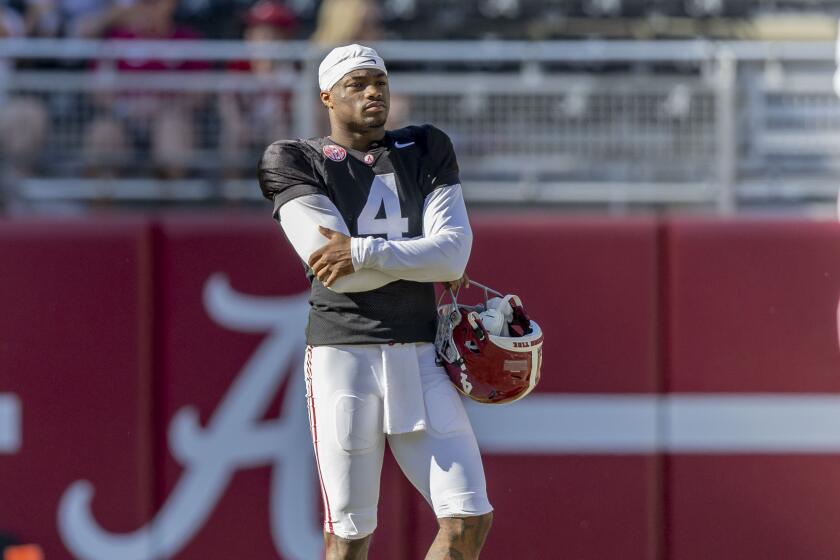Shaun White chasing spot on fifth Olympic team at age 35
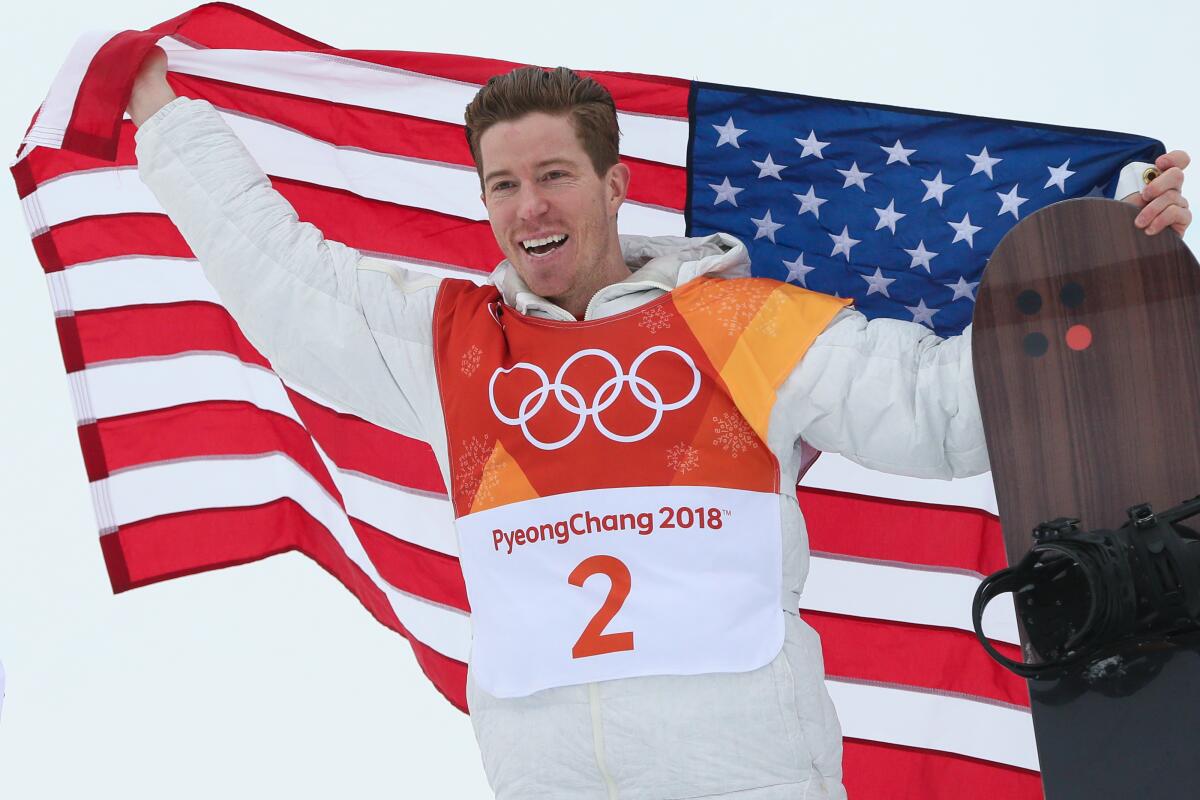
Snowboarder has won three gold medals but the halfpipe has become a young man’s sport
Snowboarder Shaun White recently invested in Shelf Engine, a company that uses computer optimization to reduce food waste by more efficiently stocking grocery stores with perishable goods.
One thing that’s not on the shelf yet: him.
White confirmed this month what was widely expected, that the 35-year-old from Carlsbad will try to qualify for a fifth U.S. Olympic team and win a fourth gold medal in snowboarding’s halfpipe. Qualifying begins in December. The 2022 Winter Games open Feb. 4 in Beijing.
“I’m feeling a little seasoned at this age but hanging in there,” White told a virtual media summit for U.S. Olympic athletes on Tuesday. “I will admit, you know, it is getting harder — just the day in, day out, the grind of doing these tricks. … Everything with patience and time.”
White had the perfect walk-into-the-sunset moment at the 2018 Olympics in South Korea, winning his third gold by landing a pair of cab double cork 1440s (two head-over-heels inverted spins while performing two 360-degree rotations) … on the final run of the competition … for the first time in his career. Most expected him to retire from snowboarding but not from the Olympics, trying to make the U.S. team in his first love of skateboarding and become only the second person to win gold medals in Winter and Summer Games.
That dream ended in March 2020, either because (the cynical version) he never recaptured his childhood form and was too far behind in qualifying or (his version) he rekindled his passion for performing flips on snow.
“Obviously I had my sights set on the Summer Olympics,” said White, who signed his first snowboarding endorsement deal at 7 and turned pro at 13. “But with the pandemic that struck and the really tough decision of, am I really ready to walk away from snowboarding yet, I just wasn’t. I switched gears and switched focus back to the winter sports.”
White has kept a relatively low profile over the last 18 months, which, considering the previous few years, is probably a good thing. His victory in Pyeongchang was tainted by his description of a lawsuit (ultimately settled) with a female drummer in his rock band that included graphic sexual harassment allegations as “gossip and stuff.”
About the time he withdrew from Summer Olympic contention, White began dating Nina Dobrev, a Bulgarian-born, Canadian-raised actress best known for her role in “The Vampire Diaries.” Their relationship reveal came in the form of a social media photo of Dobrev trimming White’s famed red locks during quarantine.
They also painted the exterior of Dobrev’s West Hollywood home, covering the mustard yellow in — what else? — white.
“It took forever,” Dobrev told Architectural Digest. “Let’s just say on day one or two, we were really excited, then by day three or four and into the first month, I was like, ‘What have I gotten myself into?’ But it turned out beautiful, so I’m happy I did it.”
Said White: “Nina is incredible. What an influence on my life. She runs her own show and her own world and companies she’s involved in and things she’s producing, all this stuff going on, and holds me to the same high standard, which is so wonderful to have in a partner.”
He speaks of the “stillness” of life’s slower pace during the pandemic, of being “forced out of that churn of daily obligations,” of being “really content where I’m at,” of “operating on a level of appreciation just to be back here at this.”
He’ll need it. The sport continues to evolve at a torrid pace, skewing younger and more athletic. When White won his first gold in 2006, he landed a pair of 1080s (three revolutions). In 2010, his signature trick was a double McTwist 1260 (3½ revolutions). In the weeks before the 2018 Games, no one had cleanly landed two 1440s in the same run; by the end of the competition, two had.
One was White, age 31. The other was silver medalist Auyumu Hirano of Japan, age 19. Ten of the 12 finalists were 23 or under.
“I’ve been the youngest competitor as long as I can remember, but I wear it now as somewhat of a badge of honor in a sense,” White said. “To be on top of a sport that’s ever-changing and for this amount of time, it’s been a challenge. … I took a really bad crash a couple of days ago. I remember I would just kind of like bounce back up and feel great but I’m like, ‘Ooh, might need a couple more days’ rest before I get back out there.’”
White hasn’t laid down a competitive halfpipe run since the 2018 Olympics, withdrawing from the 2021 Winter X Games in Aspen last winter with a knee injury. The winner was Japan’s Yuto Totsuka, whose runs regularly include the previously unthinkable combination of frontside double cork 1440, cab double cork 1260 and switch backside double cork 1080. He just turned 20.
Or put another way: Totsuka was 4 when White won his first gold.
Or another: No one 35 has ever competed in the harrowing event of halfpipe at an Olympics.
So is this it for the Flying Tomato?
“I always say it might be (the last Olympics) just because that’s how it feels,” White said. “And then time keeps moving on and I’m thinking, ‘Gosh, I’m feeling pretty good, I’m motivated, I’m excited,’ and then boom — I’m at the next one. So I wouldn’t count the next one out.”
Go deeper inside the Padres
Get our free Padres Daily newsletter, free to your inbox every day of the season.
You may occasionally receive promotional content from the San Diego Union-Tribune.

